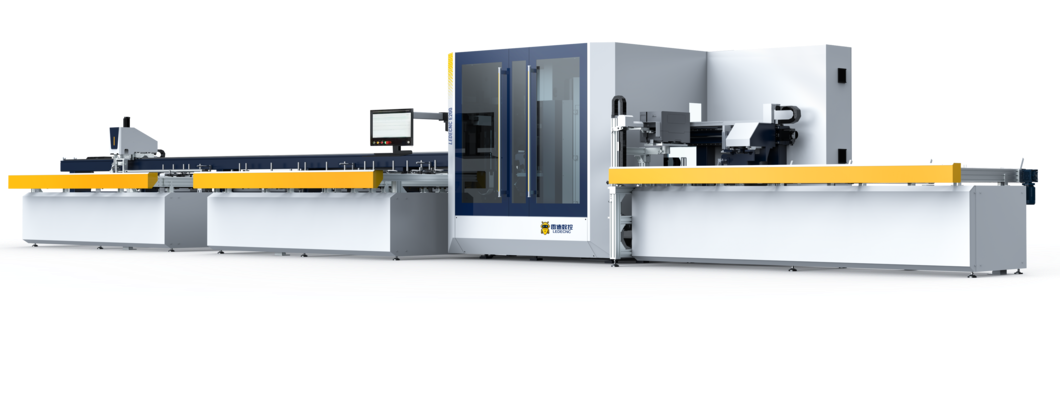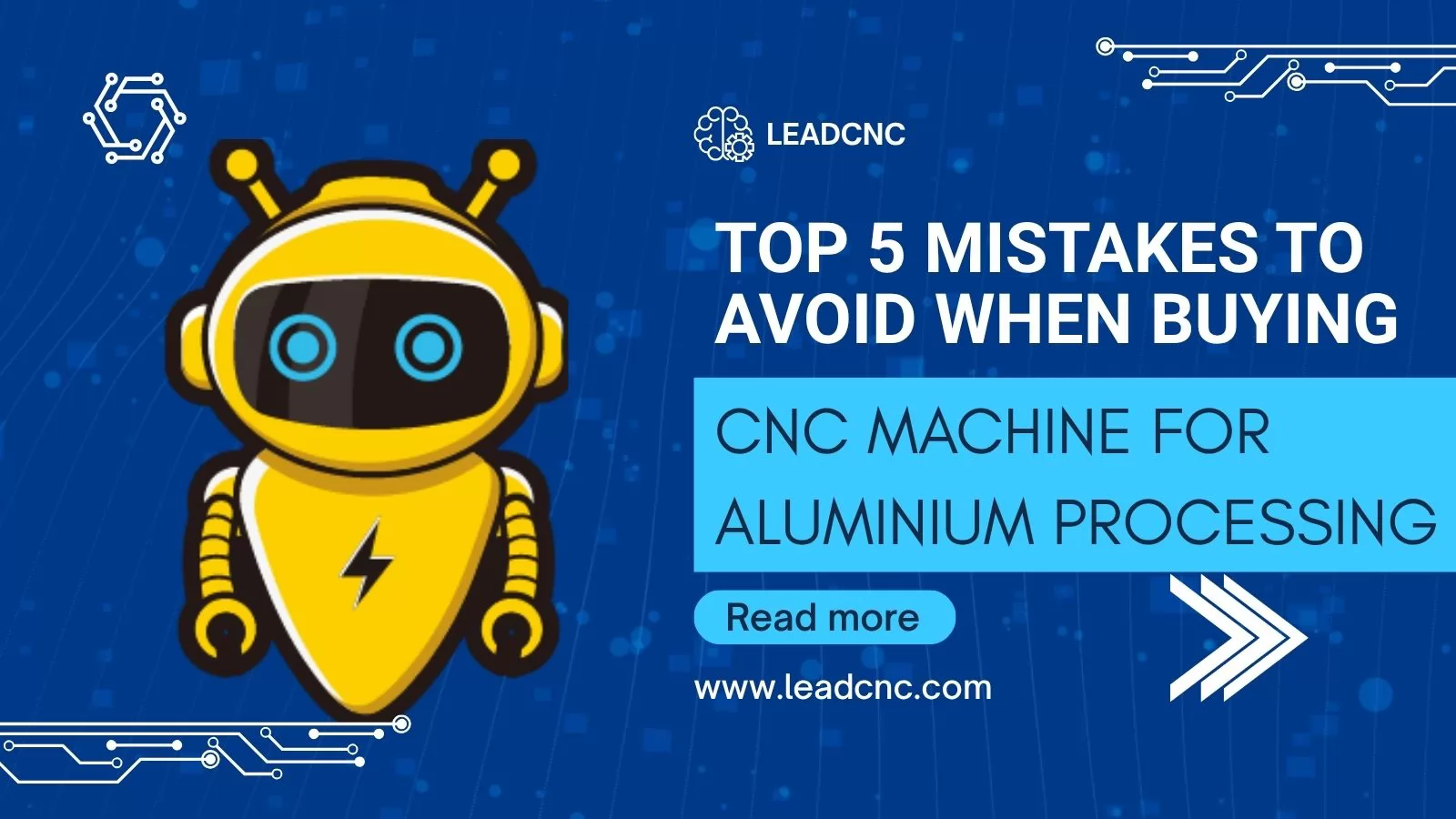
Top 5 Mistakes to Avoid When Buying a CNC Machine for Aluminium ProcessingBuying a CNC machine is a significant investment, especially for businesses focused on aluminium processing. From extruded profiles for windows and doors to intricate automotive components, aluminium demands precision, repeatability, and high-speed machining. However, many buyers fall into avoidable traps that lead to wasted time, money, and productivity. Below are the top five most common (and costly) mistakes to avoid when selecting your next CNC machine tailored for aluminium applications.
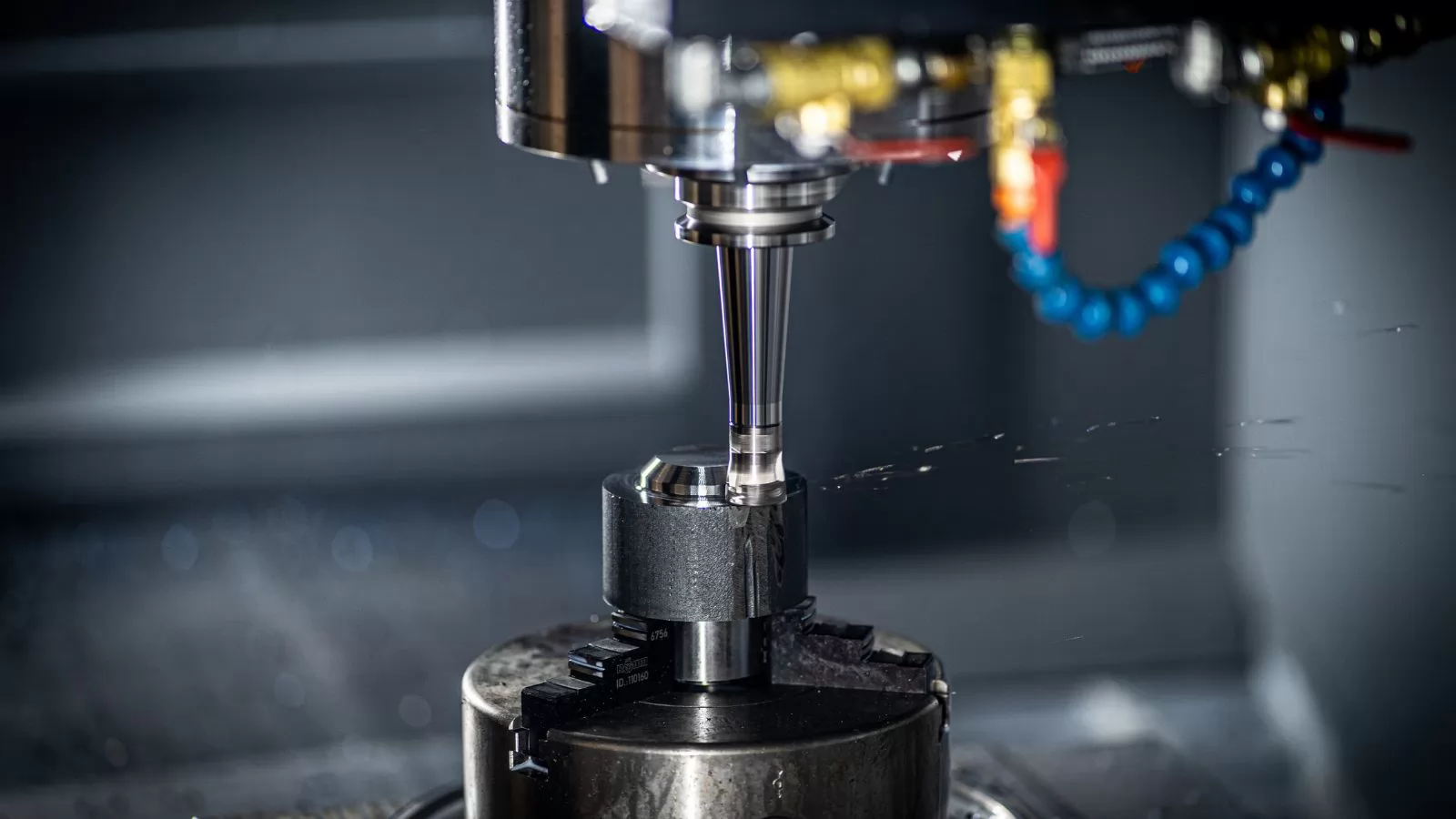
Not all CNC machines are created equal—especially when it comes to aluminium. Aluminium is a softer, non-ferrous metal that behaves differently compared to steel or composite materials. It requires high spindle speeds to maintain surface quality and prevent material build-up on cutting tools. Poor chip removal can cause recutting, tool deflection, or premature tool wear. Furthermore, thermal expansion of aluminium during machining can affect tolerances if not properly managed.
What to do instead:
Prioritize machines specifically engineered for non-ferrous metals such as aluminium, brass, or copper.
Ensure the spindle speed can reach at least 18,000 RPM or higher to support high-speed cutting with smaller-diameter tools.
Look for integrated mist or micro-lubrication systems that minimize coolant use while improving chip evacuation and tool longevity.
Ask the manufacturer about previous successful aluminium applications with their equipment.
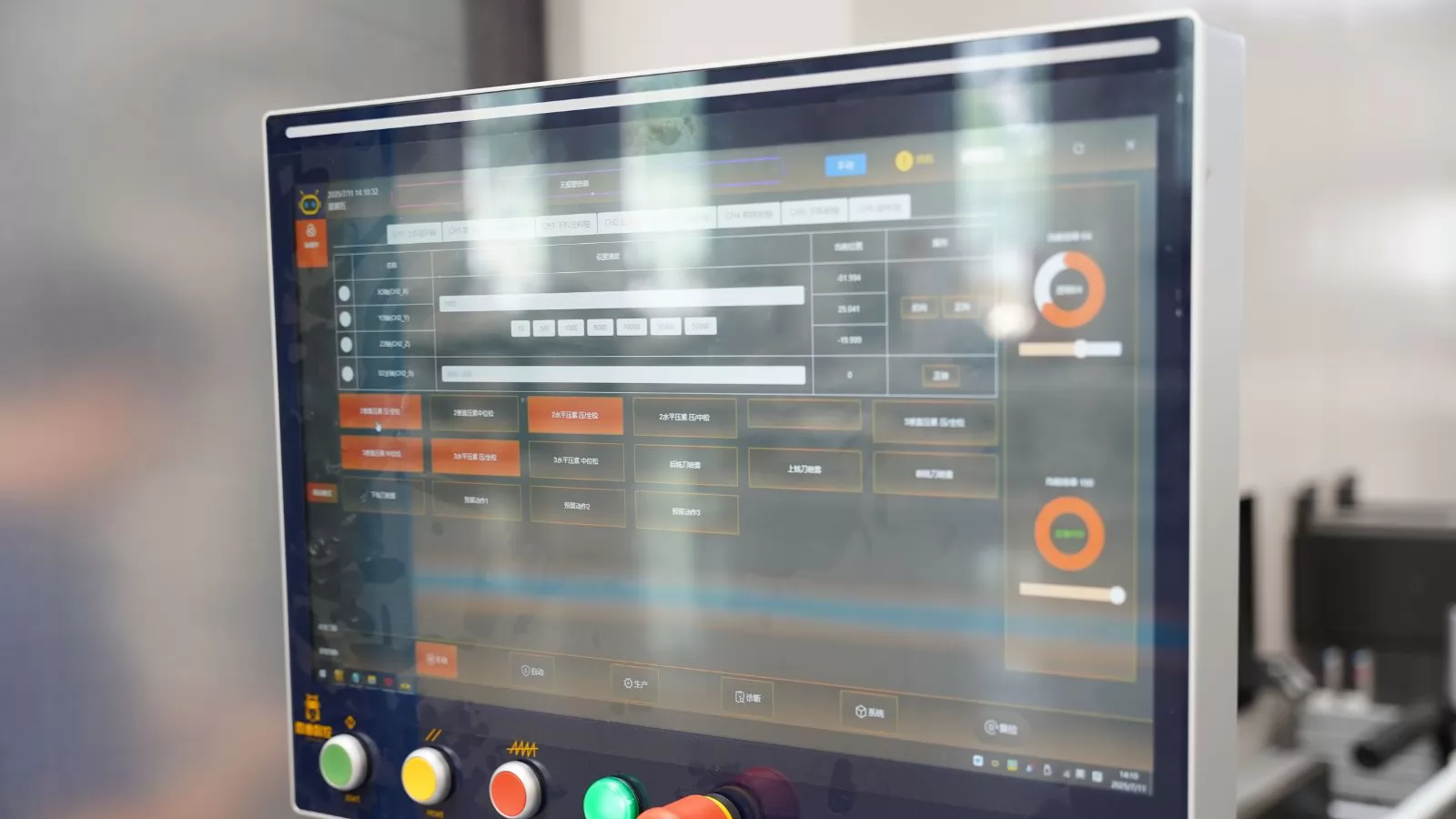
Aluminium is often cut at high speeds and feed rates to take advantage of its machinability, but these conditions can amplify vibrations and mechanical stress if the machine lacks structural rigidity. Poor machine construction can lead to chatter, inaccurate cuts, and dimensional instability in complex parts or long-profile workpieces.
What to do instead:
Choose CNC machines with rigid frames—preferably cast-iron beds or heavy-duty welded steel bases that minimize vibration.
Analyze the stiffness of the gantry system, spindle housing, and Z-axis components—especially if you're considering 5-axis or high-speed operations.
Request demo videos, test cuts, or customer references showing aluminium applications under aggressive machining conditions.
Evaluate the total machine weight and footprint, as heavier machines typically dampen vibration more effectively.
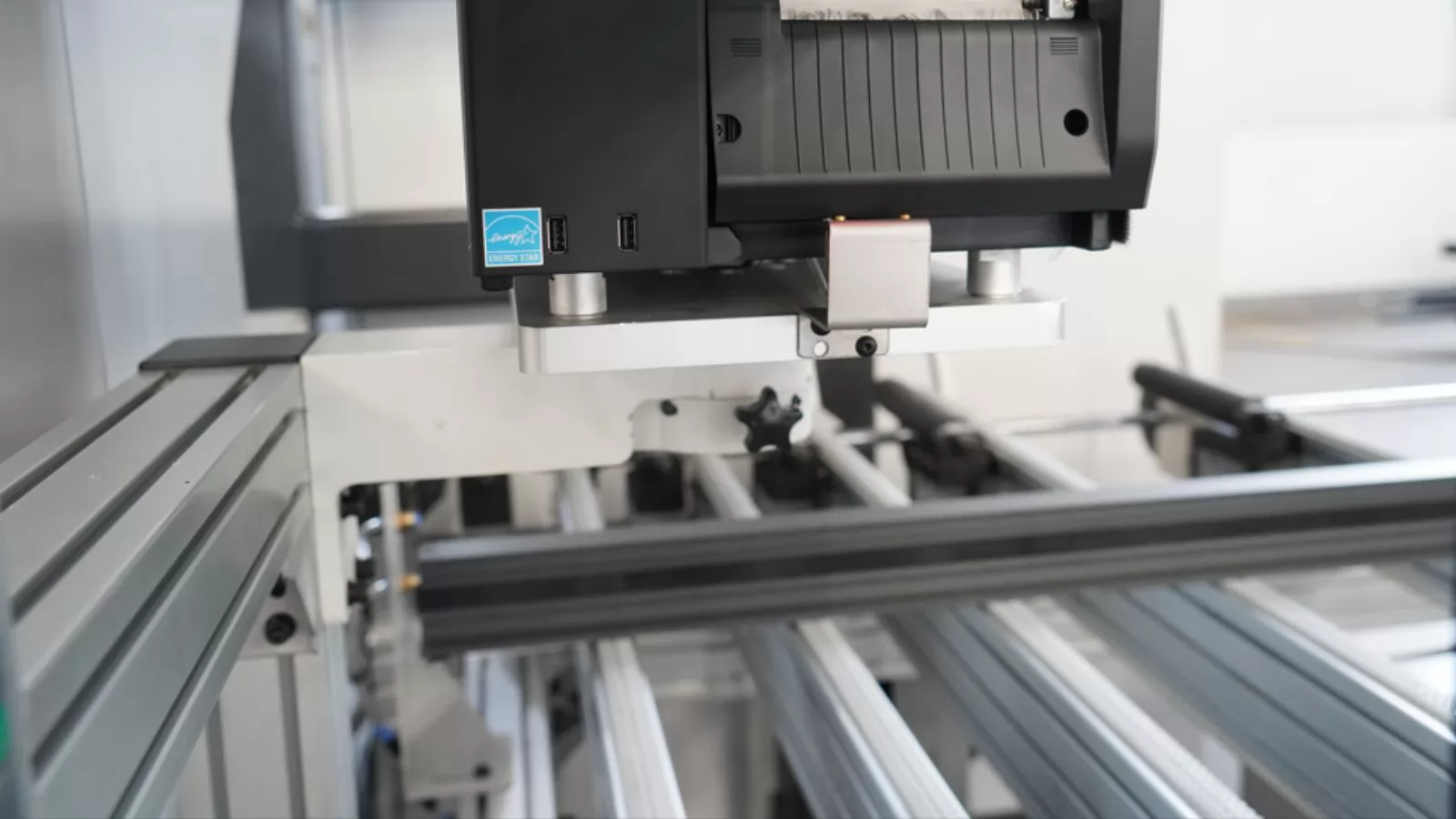
In modern manufacturing, especially for high-volume aluminium profile machining, automation is no longer optional—it's essential. Manual material loading, setup changes, and dimensional checking eat into production time and reduce output consistency. Failing to plan for automation often leads to unexpected upgrades, rework, or inefficiencies in scale-up.
What to do instead:
If you’re processing long aluminium extrusions or mass quantities, invest in machines that support auto-loading/unloading systems.
Look for CNCs equipped with automatic tool changers (ATC), workpiece probing systems, and fixture recognition for seamless job transitions.
Consider machines compatible with Industry 4.0 smart features like real-time production data, predictive maintenance, and remote troubleshooting.
Evaluate the software ecosystem—can it integrate with your ERP/MES systems for improved scheduling and monitoring?

Even the most advanced CNC machine will require maintenance, troubleshooting, or replacement parts. Unfortunately, many buyers overlook this critical aspect and end up waiting weeks—or even months—for technical assistance or replacement components, causing costly downtime and lost revenue.
What to do instead:
Work with suppliers that have a regional presence or certified service partners in your country or manufacturing zone.
Ask about available training programs, technical documentation, and whether remote support (e.g., via VPN or smart glasses) is offered.
Request a spare parts list and inquire about their warehouse stock levels for fast-moving components such as belts, motors, sensors, and drive units.
Evaluate the responsiveness of the sales and service team during your initial inquiry—it often reflects the level of ongoing support you’ll receive.
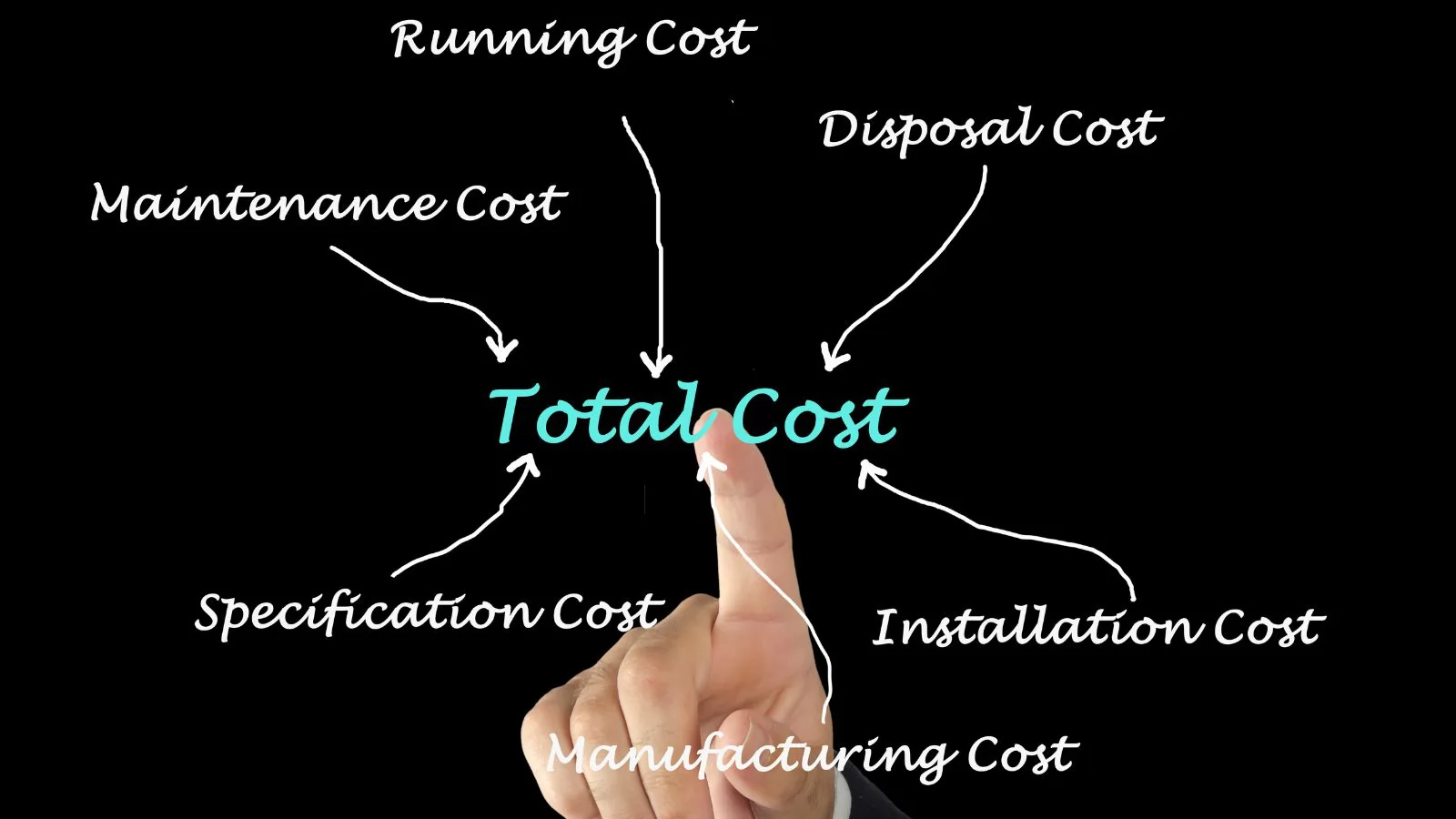
It's tempting to prioritize the lowest-cost option when choosing a CNC machine. But purchasing a cheaper machine without considering hidden costs—like frequent repairs, high energy consumption, poor reliability, or operator inefficiency—can end up costing far more over time.
What to do instead:
Compare productivity rates across different models—look at machining time, setup duration, and tool life.
Evaluate energy efficiency, tool change speeds, and maintenance frequency.
Consider the machine's upgrade path: Can it be modified with automation or software enhancements as your business grows?
Calculate the total cost of ownership (TCO) over 3–5 years, including downtime risk, consumables, training, and service plans.
Buying the right CNC machine for aluminium processing is about aligning performance, precision, and long-term value. By avoiding these five costly mistakes—ignoring aluminium-specific needs, underestimating rigidity, skipping automation, neglecting after-sales support, and focusing solely on price—you’ll position your business for consistent quality, faster turnaround times, and future-ready scalability.
Whether you're producing curtain wall profiles, electric vehicle battery trays, or high-precision enclosures, selecting the right CNC equipment is a strategic decision—not just a procurement one.
Ready to explore aluminium-focused CNC solutions? [Contact LEADCNC] to learn how our MCG Series 5-axis machining centers are engineered for optimal aluminium productivity, automation, and precision.
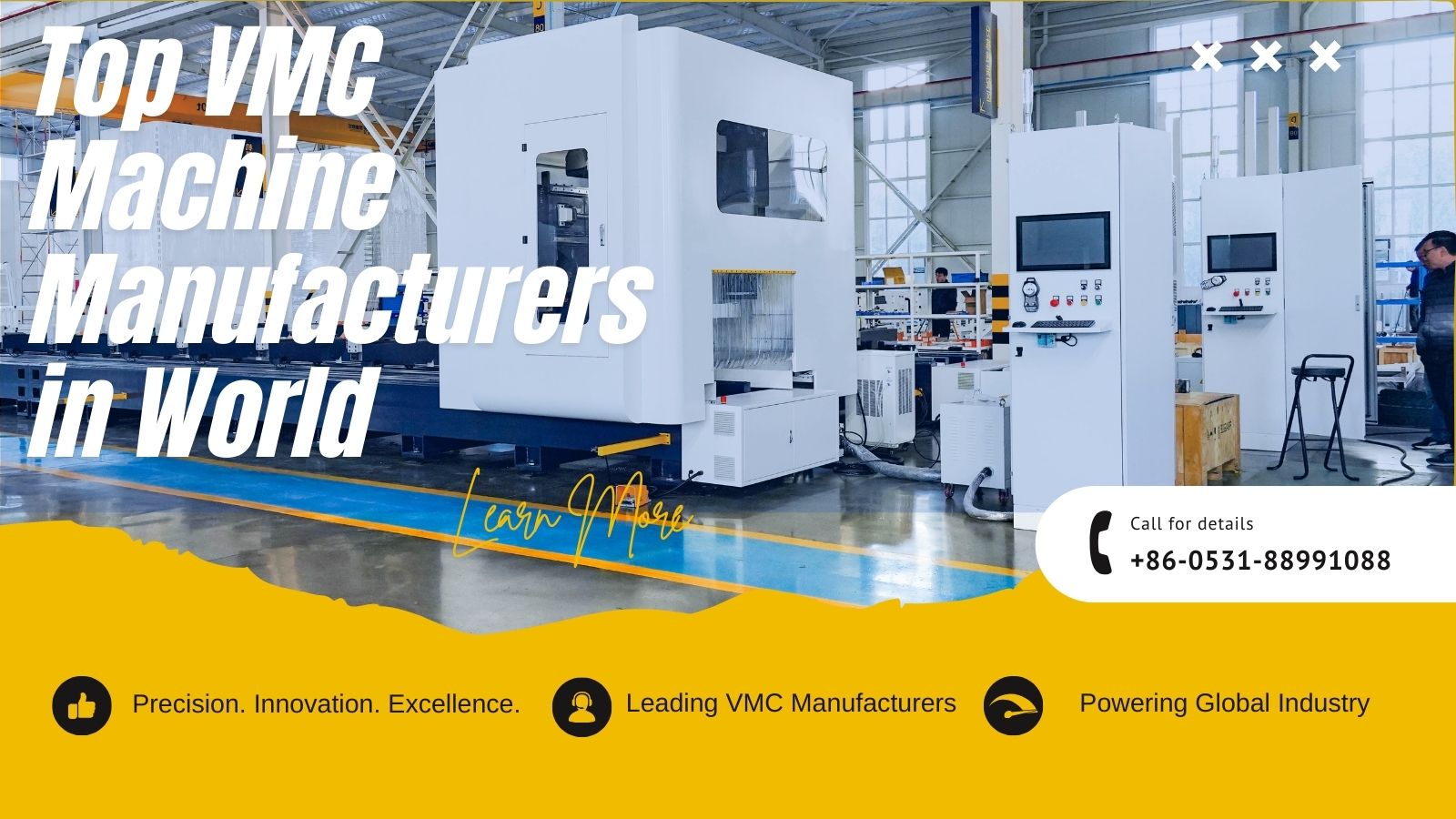

Discover 2025's top 10 VMC machine manufacturers worldwide. Compare leading brands for innovation, reliability and value to find your ideal vertical machining center.
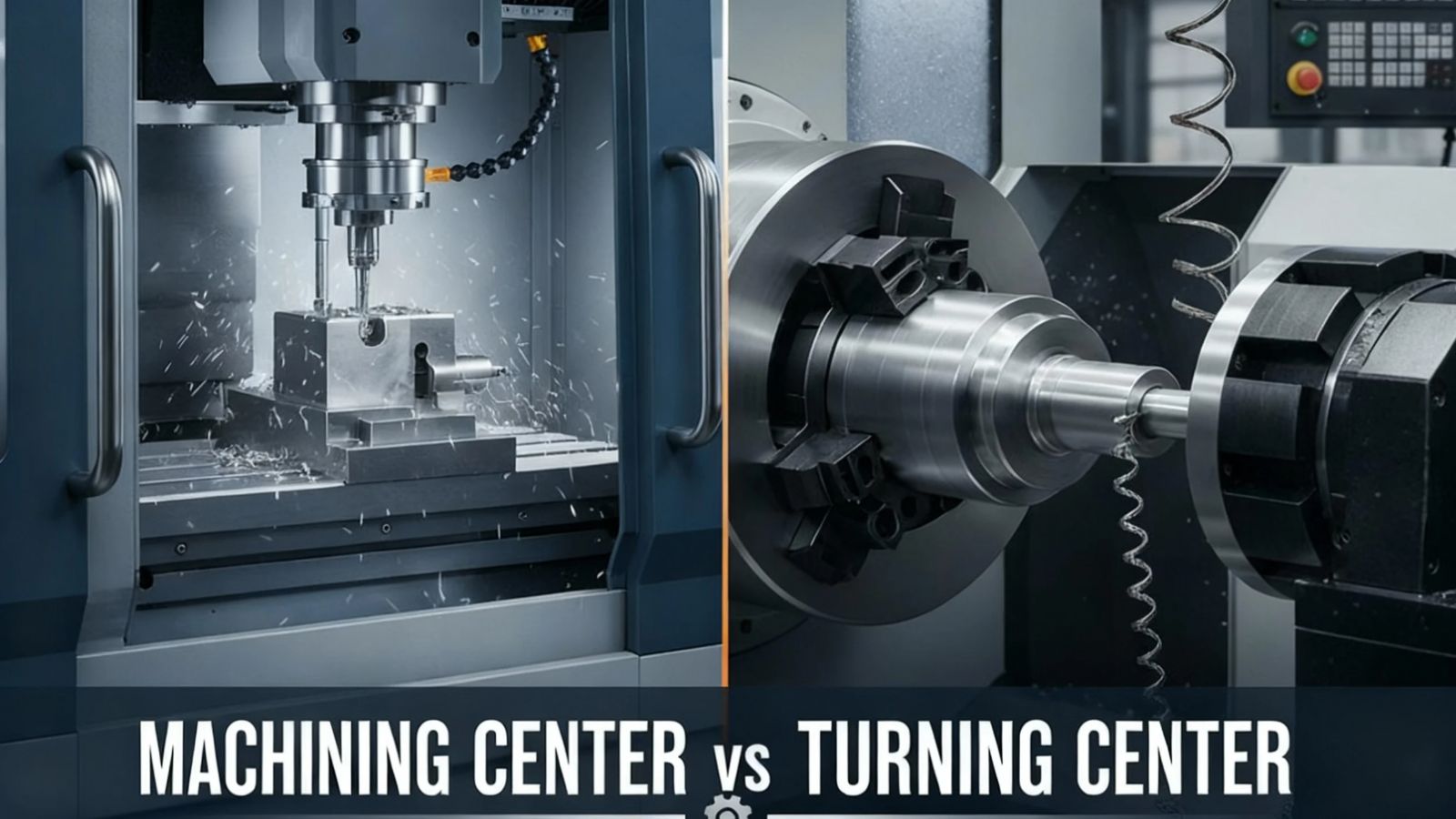

Understand the key differences between machining centers and turning centers. A guide for engineers and procurement on operational capabilities, precision, and selection criteria for CNC equipment.
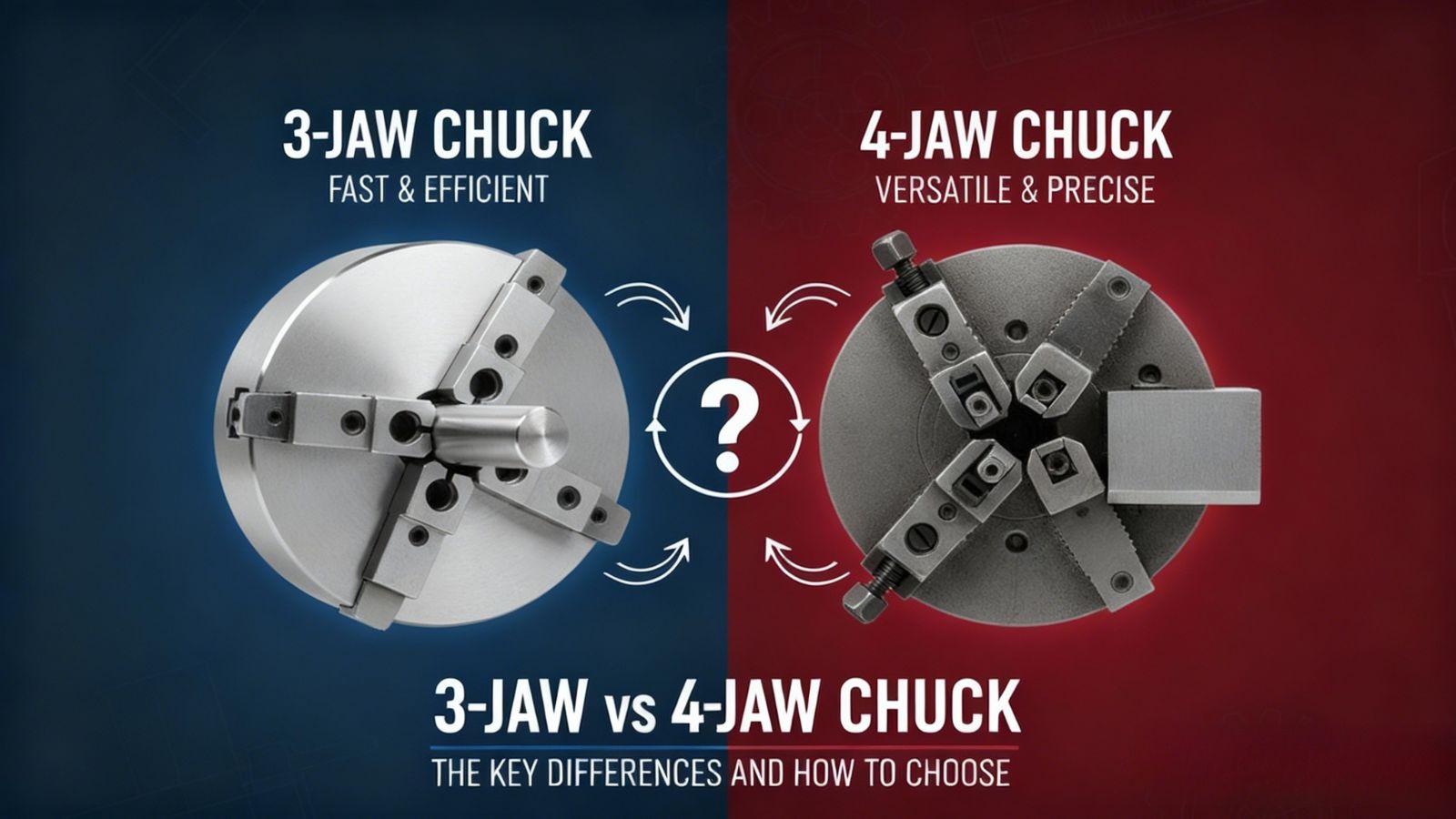

Compare 3-jaw vs 4-jaw chucks for turning operations. Learn the differences in self-centering, precision (runout), setup time, and how to choose the optimal chuck for high-volume or irregular workpieces.
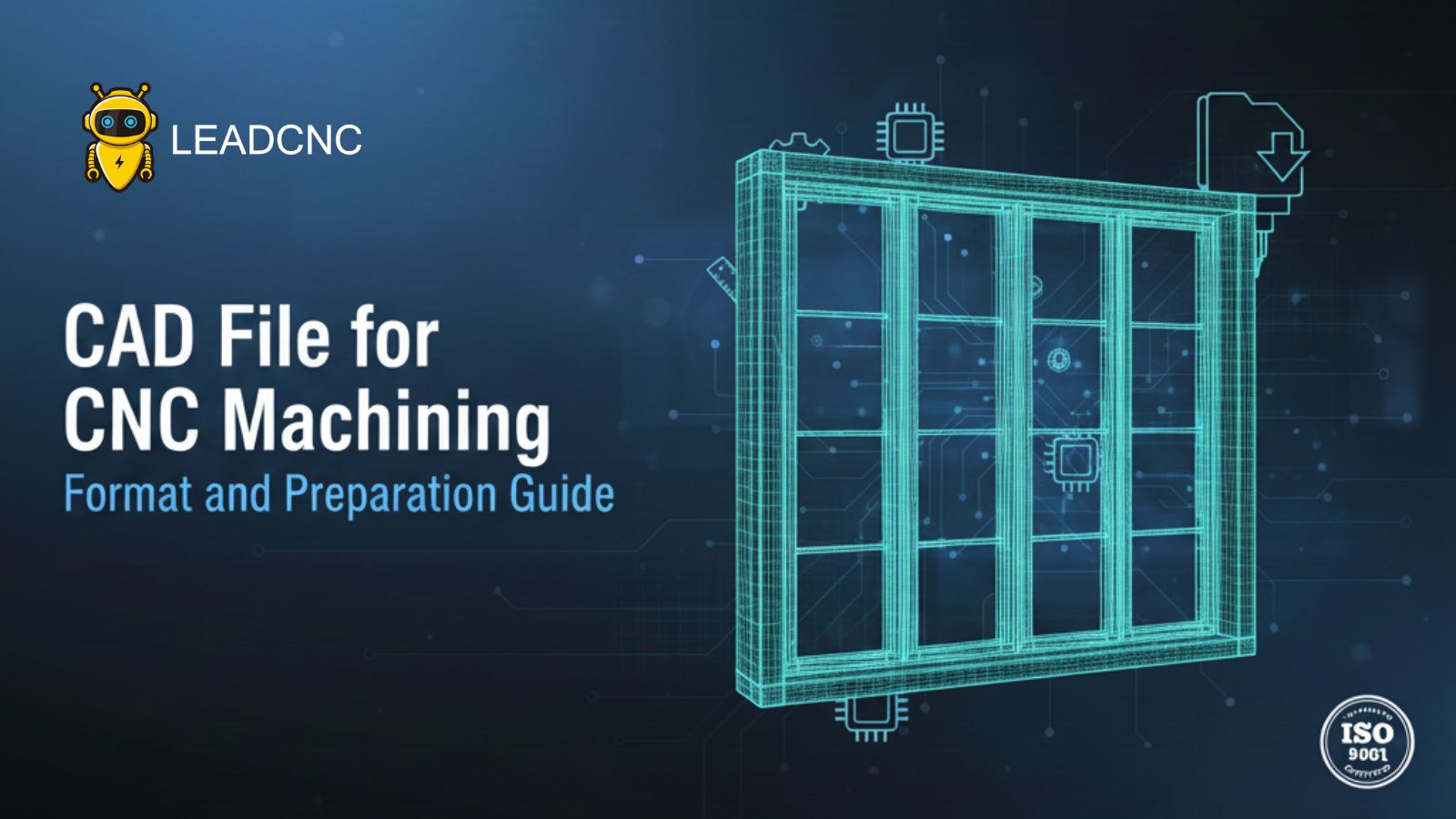

A definitive guide for engineers and procurement on preparing CAD files for CNC. Learn about essential formats (STEP, IGES), DFM practices, and geometric cleanup for precision machining.


